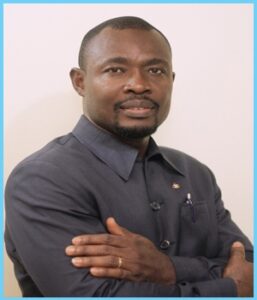24-hour economy will have implications for land administration – Expert

The 24-hour economy strategy proposed by John Mahama and the National Democratic Congress (NDC), continues to attract comments by professionals in different sectors.
Speaking at the 2024 annual African Real Estate Society (AfRES) Conference in Livingstone Zambia on 10-13 September, a land governance expert and private legal practitioner – Dr. Gad Asorwoe Akwensivie said a 24-hour economy strategy will have serious implications for land administration in Ghana particularly on land service delivery by public sector land agencies.
Dr. Akwensivie said currently, there is a huge backlog of land registration applications at the Lands Commission resulting from the long turn-around time for completing land registration and that a 24-hour economy would enable the Office of the Administrator of Stool Lands and the Lands Commission to clear the backlog of cases pending at the Survey & Mapping, the Public & Vested Land Management, the Valuation and the Land Registration Divisions of the Commission.
He said some searches and land registrations have taken more than a year to complete and that incorporating a shift system into the Standard Operating Procedure (SOP) of the Land Use and Spatial Planning Authority, the Office of the Administrator of Stool Lands and the Lands Commission would not only help clear the backlog, but help to shorten the turn-around time for service delivery, thereby enabling the government sector to serve the public better.
“People won’t have to use “goro-boys” anymore because if you submit your indenture to the Customer Service and Access Unit (CSAU) and you are sure to get quick service, why would you use “goro-boys?” he asked and stated that “If the back offices work at night, it should be possible for some light documents and non-inspection cases to be completed within a 24-hour cycle”. This would lead to an improvement of Ghana’s ranking on indices such as The World Bank’s Doing Business Report which is published periodically, and improve the country’s competitiveness that would help to attract foreign direct investment.
He said the Lands Commission in particular plays a crucial role in the country’s development due to the nature of the services it renders such as application for lease on state lands and title and deeds registration.
He said, if these services can be rendered quickly, people can make informed decisions on land faster which would boost local and foreign investment.
According to Dr. Akwensivie, banks would also benefit from a 24-hour economy.
Financial institutions would be able to advance loans quickly because loan applicants won’t have to wait for one or two months to complete a certificate of search report.
“Estate developers and professionals in the built environment such as architects, surveyors, valuers, civil engineers, quantity surveyors and lawyers who rely on the services of these public sector agencies can expect to render more efficient services to their clients,” he added.
Dr. Akwensivie argued that as a lawyer, he believes a 24-hour economy would help to improve the efficiency of the judiciary because when land administration is improved, conflicts resulting from indeterminate boundaries, ownership, etc. would reduce which in turn would reduce the frequency of land related litigation.
He drew on lessons from developed countries implementing the 24-hour economy and concluded that a 24-hour economy strategy of three-shifts, three-employees, one-job would be a game changer.
The AfRES, is a continent-wide organization founded in 1997. It seeks to promote networking, research and education among property professionals and academics across Africa.
According to organisers, the AfRES conference brings together representatives from academia and practice from the continent and from across the world to discuss and present innovative solutions to real estate challenges.
The 2024 conference was held under the theme, “Smart Cities in Africa for the 21st Century”.
By Edmund Mensah
